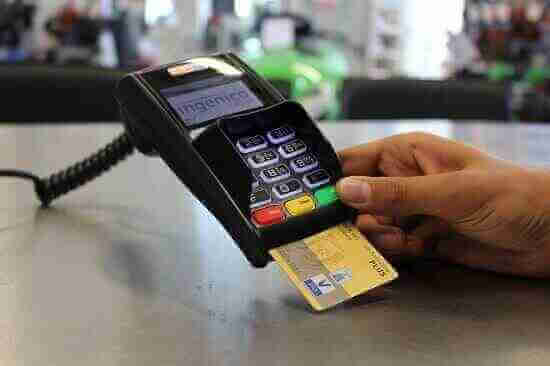Blog
The Future of Gold in A Cashless Society
Gold has been a popular commodity and safe haven of wealth for centuries. However, as we approach the very real prospect of a cashless society, where does that leave precious metals such as gold and silver? Governments and financial institutions are very keen for us to move towards a cashless financial system, arguing that it is more efficient and easier to prevent crime, however, what it really boils down to is control. With everything being digitised, governments can see exactly what money is being spent where and have a far greater command of the financial system.
What’s driving the move towards a cashless society?
Last year in the UK, more cashless payments were made than any year previously. In August 2016 over 260 million contact-less transactions were made in the UK alone, which represents a 200% increase from the year before. Across European countries like Sweden are already leading the way when it comes to becoming a society without cash, with cash transactions making up less than 2% of their total payments last year. If this evidence is anything to go by, a future without cash is a distinct possibility. Some experts believe we could even see it happen within the next five years.
How exposed is your family to a market downturn and how can gold protect you? Take our test now
That’s not all….
What’s driving this move towards a cashless society? Well, convenience is one of the main reasons. Many people these days prefer to pay by card as it allows them to keep track of their payments more easily and it means they don’t have to carry cash around with them. The problem is the nearer we get towards becoming a cashless society, the more reliant we are on banks as well as the digital system. If all of our wealth is reduced to numbers on a screen, then we are essentially powerless in the event of a technology glitch. All it takes is a system failure and people could find themselves with nothing to fall back on and unable to make the basic transactions necessary to live on.


Negative effects of a cashless society
For every positive argument put forward as to why we should become a cashless society, there are also several negatives. For example, the government are very keen to point out that the removal of cash from society will prevent crimes such as money laundering, however, cash money laundering in the UK is nowhere near as big a problem as cyber laundering. It is also an easier and less costly problem to solve. Furthermore, a completely digital monetary system leaves us more exposed to the risks of cyber theft and other white-collar crimes such as online fraud. Financial fraud losses in the UK last year totalled £768.8m. Impersonation and deception scams, as well as hacking and malware, were highlighted as being among the main problem areas, with payment card fraud alone accounting for £618m of the total losses.
What does this mean for you…
Another big problem with a cashless society is that control is taken away from the ordinary citizen. Small everyday transactions such as leaving a tip in a restaurant become much harder without access to hard cash. A fully digitised payment system also means complete transparency of people’s spending habits. Banks and big businesses can see exactly where people shop, what they spend and how they fund their everyday lives. In other words, they would basically have a very detailed and accurate personal profile of every single person in the country. With data protection already becoming such a huge problem, any system that makes it easier for people to take advantage of our personal information is a worrying thought.
This is just one example of how banks would benefit hugely from a society without cash. As it stands, banks have to uphold a fairly acceptable level of interest rates in order to encourage people to bank with them. If people don’t have access to physical cash however, banks can afford to charge whatever interest rates they choose. In some counties including Germany, Denmark and Japan, this has even led to some banks charging negative interest rates in a bid to try and boost spending and investment. Some financial experts have warned that this could be a very real possibility if we continue down the path to a cashless society.


What this means for the future of gold
The closer we get to becoming a cashless society, the more important it will be for people to hold some form of tangible assets. In times of economic strife or uncertainty, people have always turned to gold as an answer and this is unlikely to change any time soon. In the near future, people will be forced to look for alternative physical currencies outside of the regulated system in order to protect their privacy and act as a safe haven against any systemic risks or potential Government expropriation. Gold is the perfect commodity in times such as these. Not only is it a finite resource with the potential to increase in value over time. Gold is also a very portable, easily stored form of wealth. Whereas people in the past might have stored some of their wealth in the form of a bag of money under the mattress, gold investments could be the next best option for future generations.
Enjoy our video, “Buying gold – 5 reasons to invest” by clicking here.
This is already happening….
Countries around the world are already looking towards gold as a way of preserving wealth. Germany for example recently brought back all their gold reserves that were stored abroad in France and the US after the war back to the country. A clear indication they see gold as a valuable asset in these unstable economic times. In China, there is also a massive increase in the number of people investing in gold and the country saw a 50% increase in gold imports last year.


Interested in purchasing gold? Our advisers are here to help
Here at Physical Gold we strongly believe in the long-term benefits of investing in gold. If you would like to speak to one of our expert advisers, then please feel free to call us on 020 7060 9992 . We will then talk you through the different options available to you and advise on what we think is the right decision for you.


